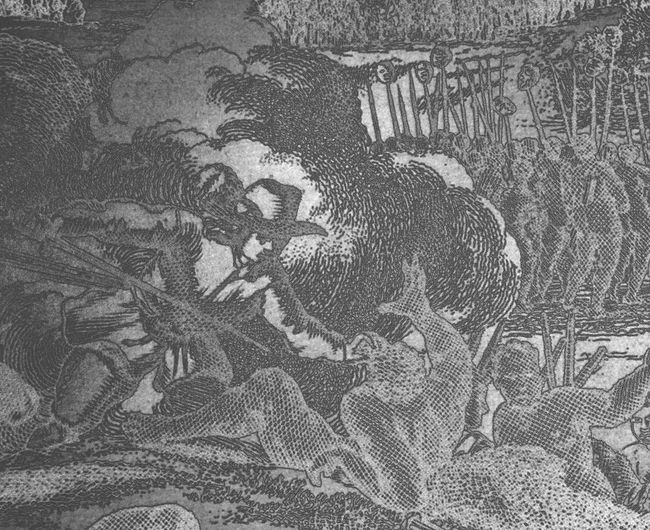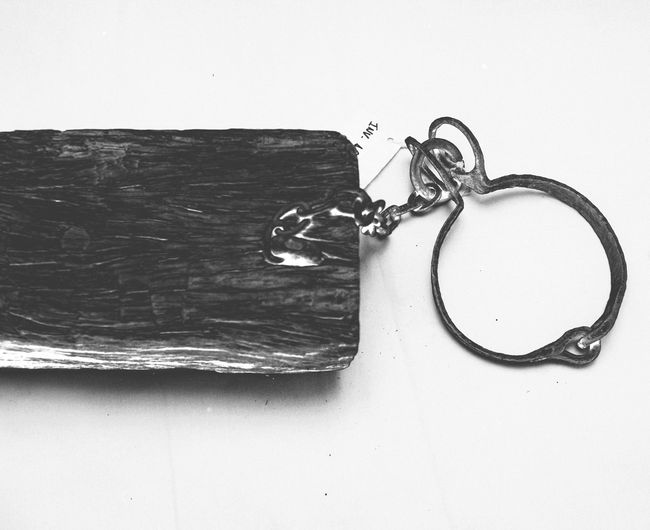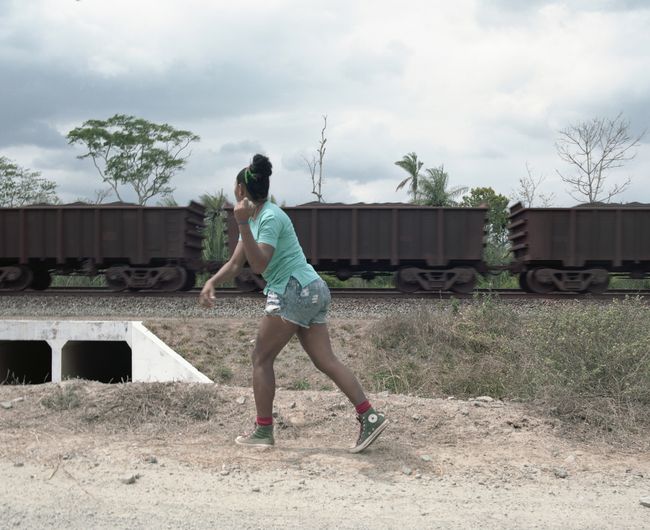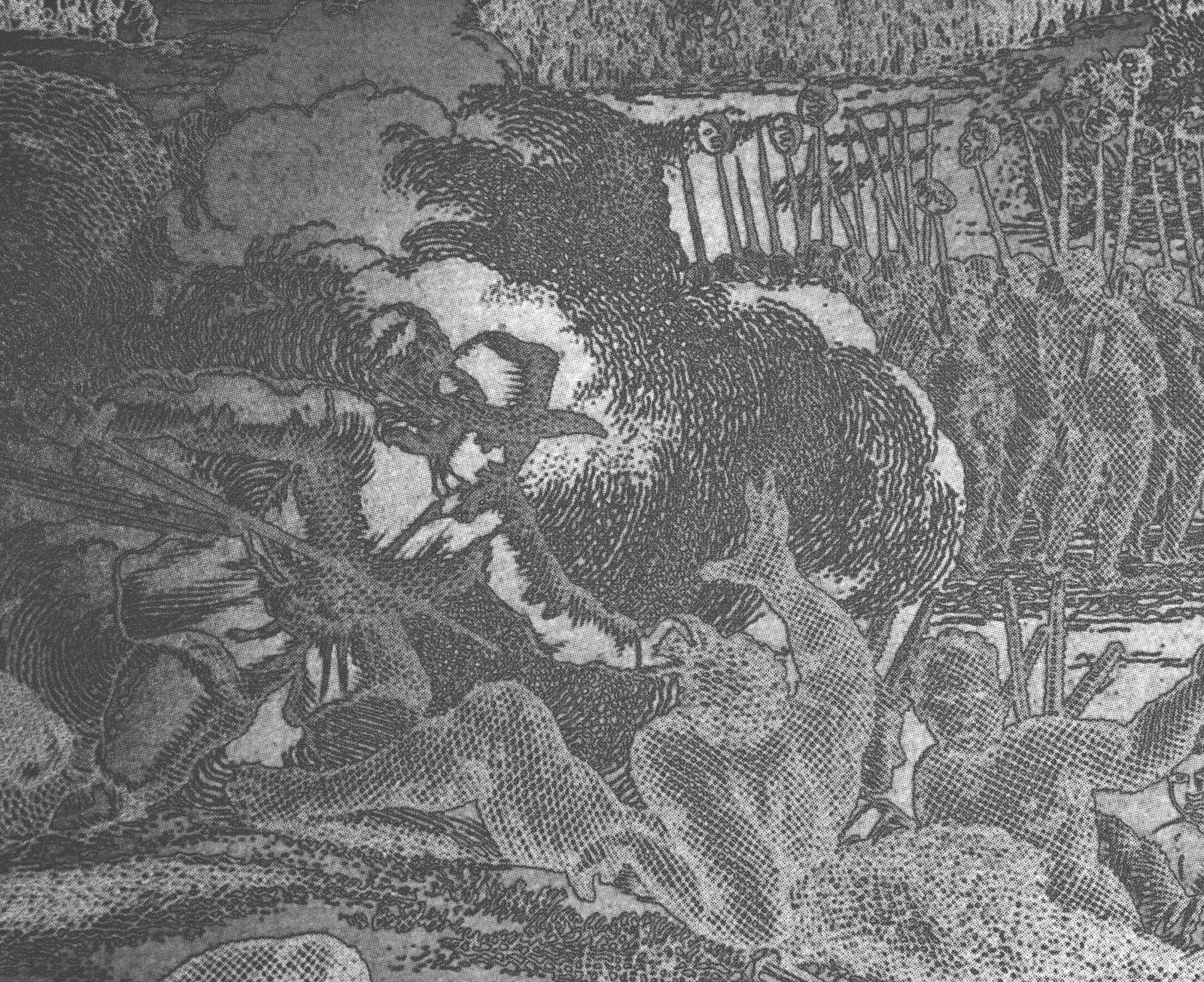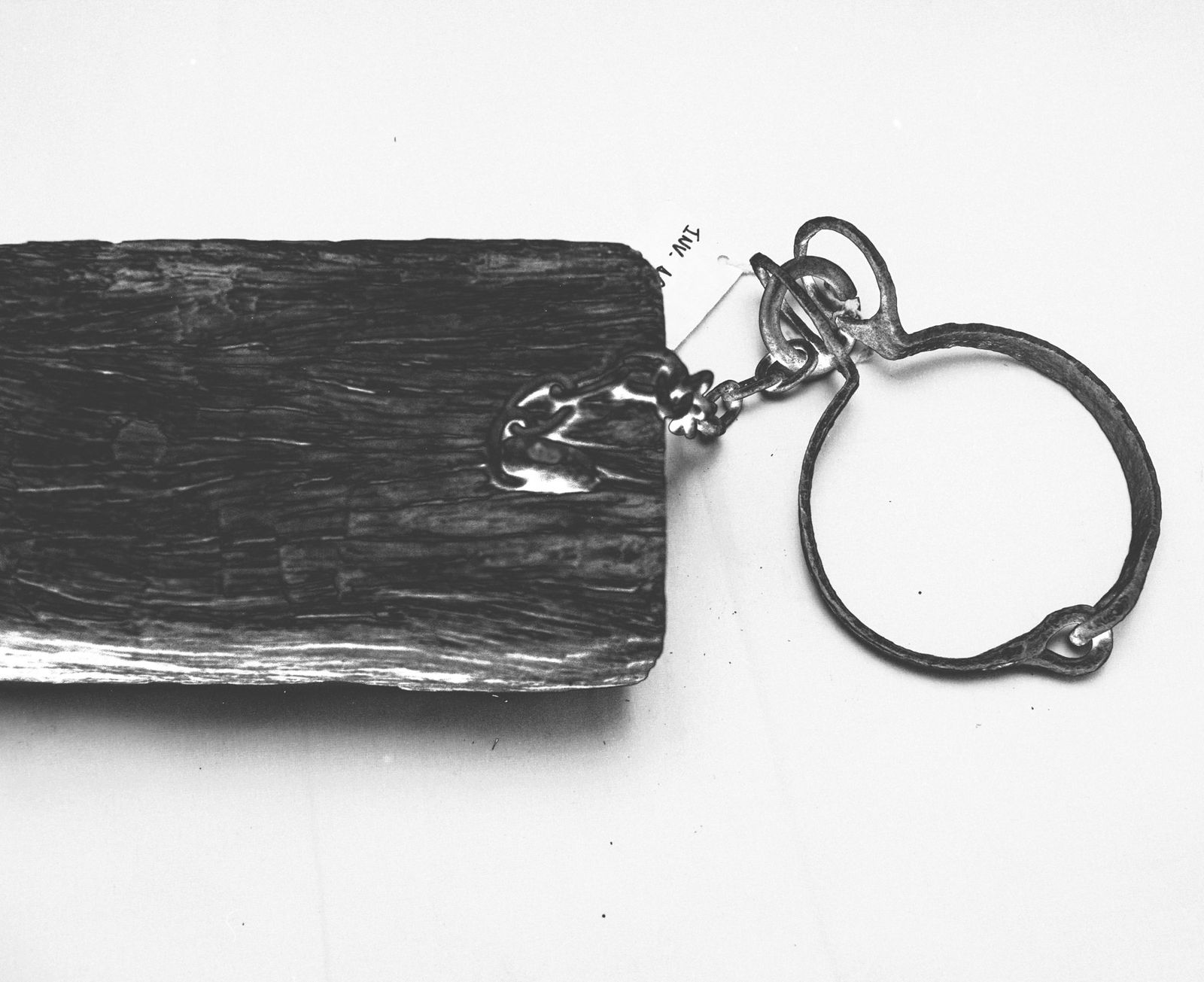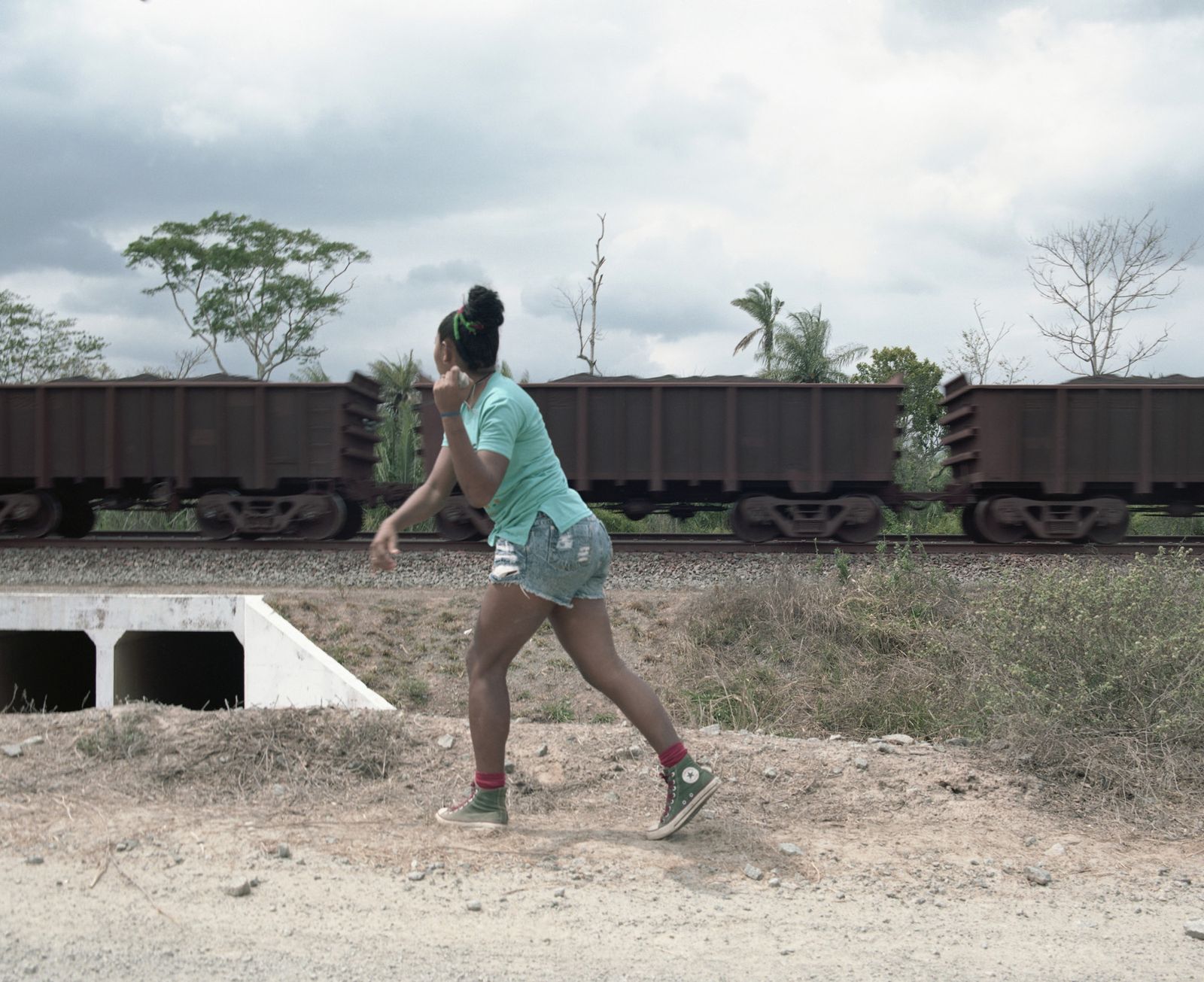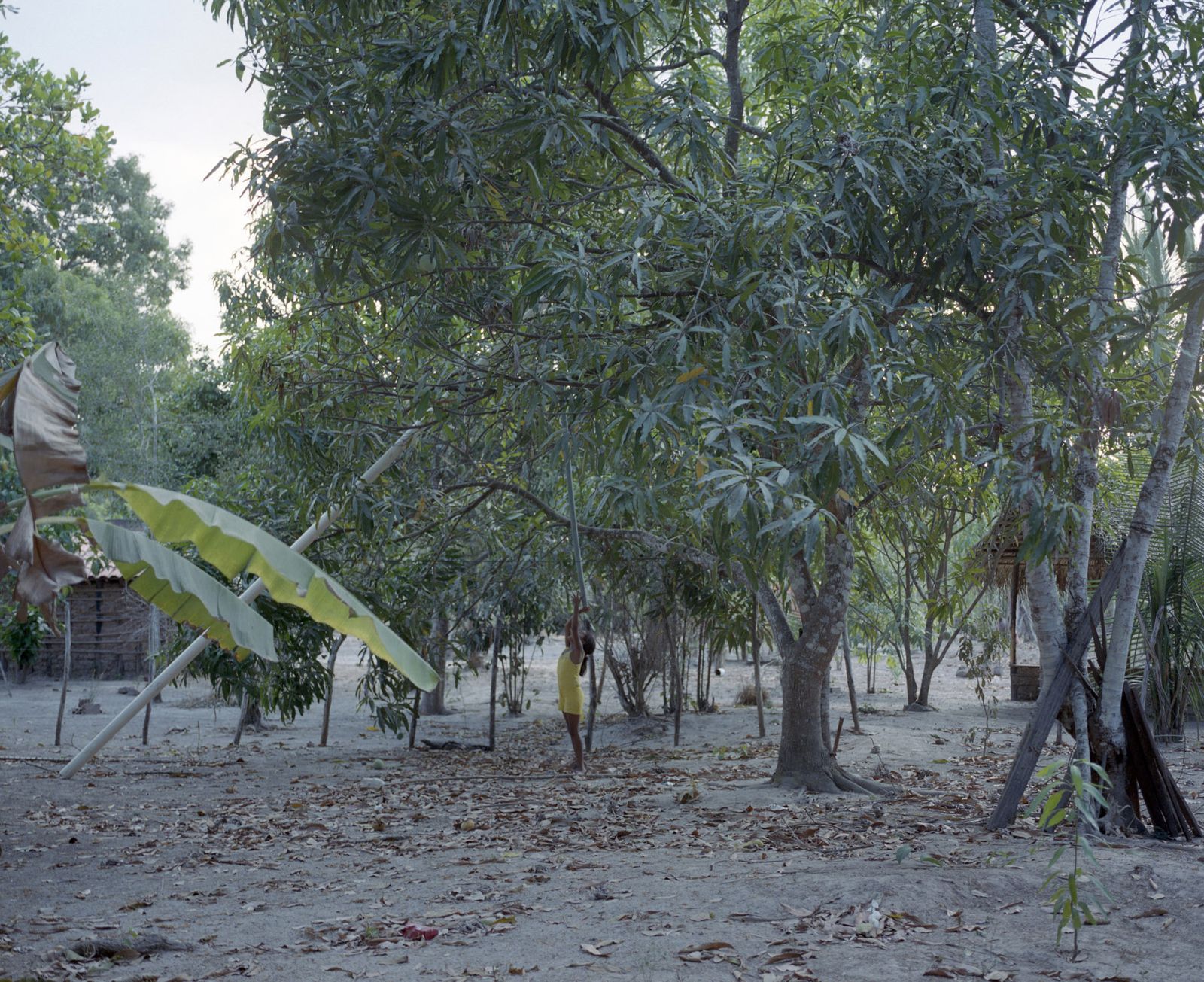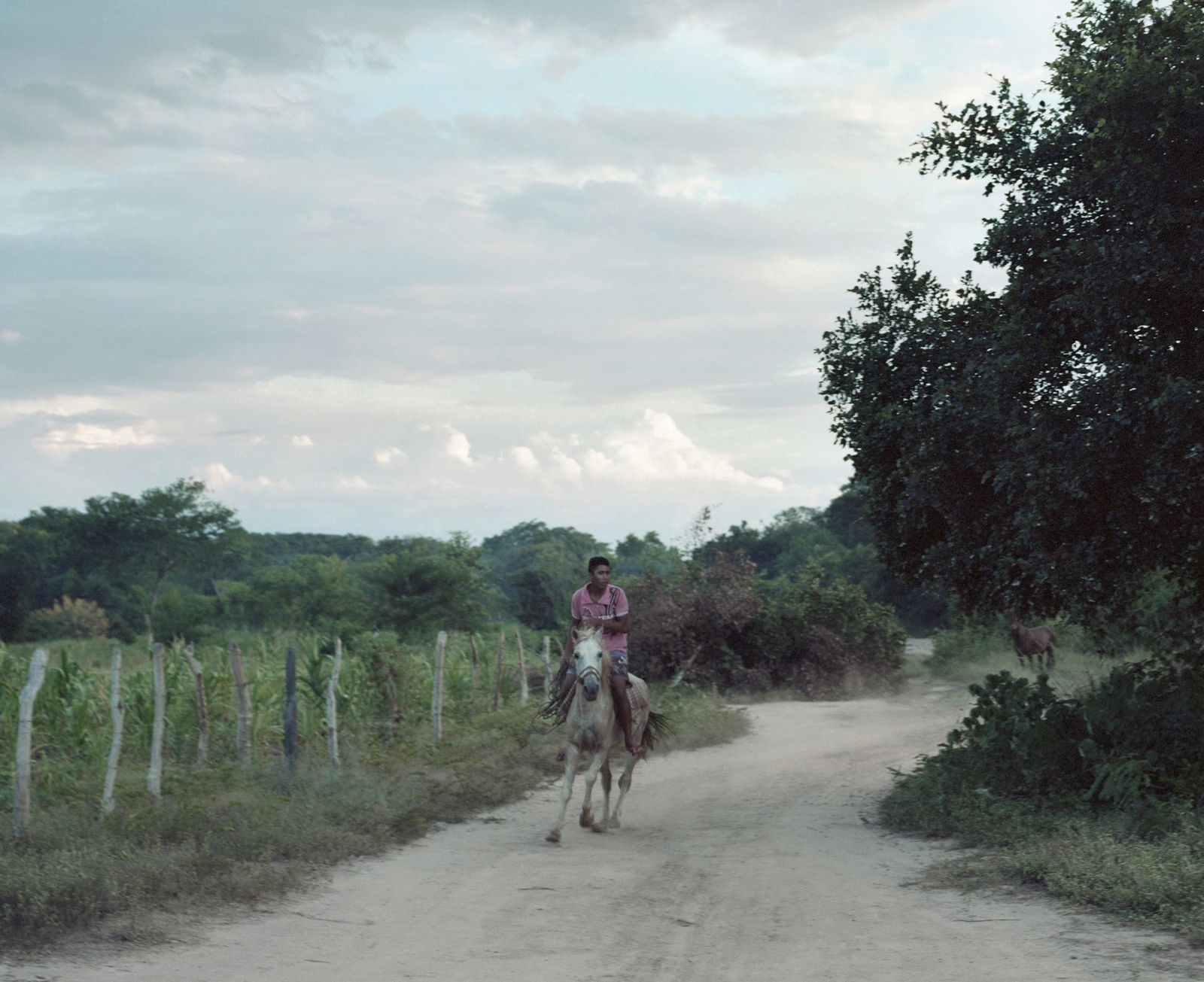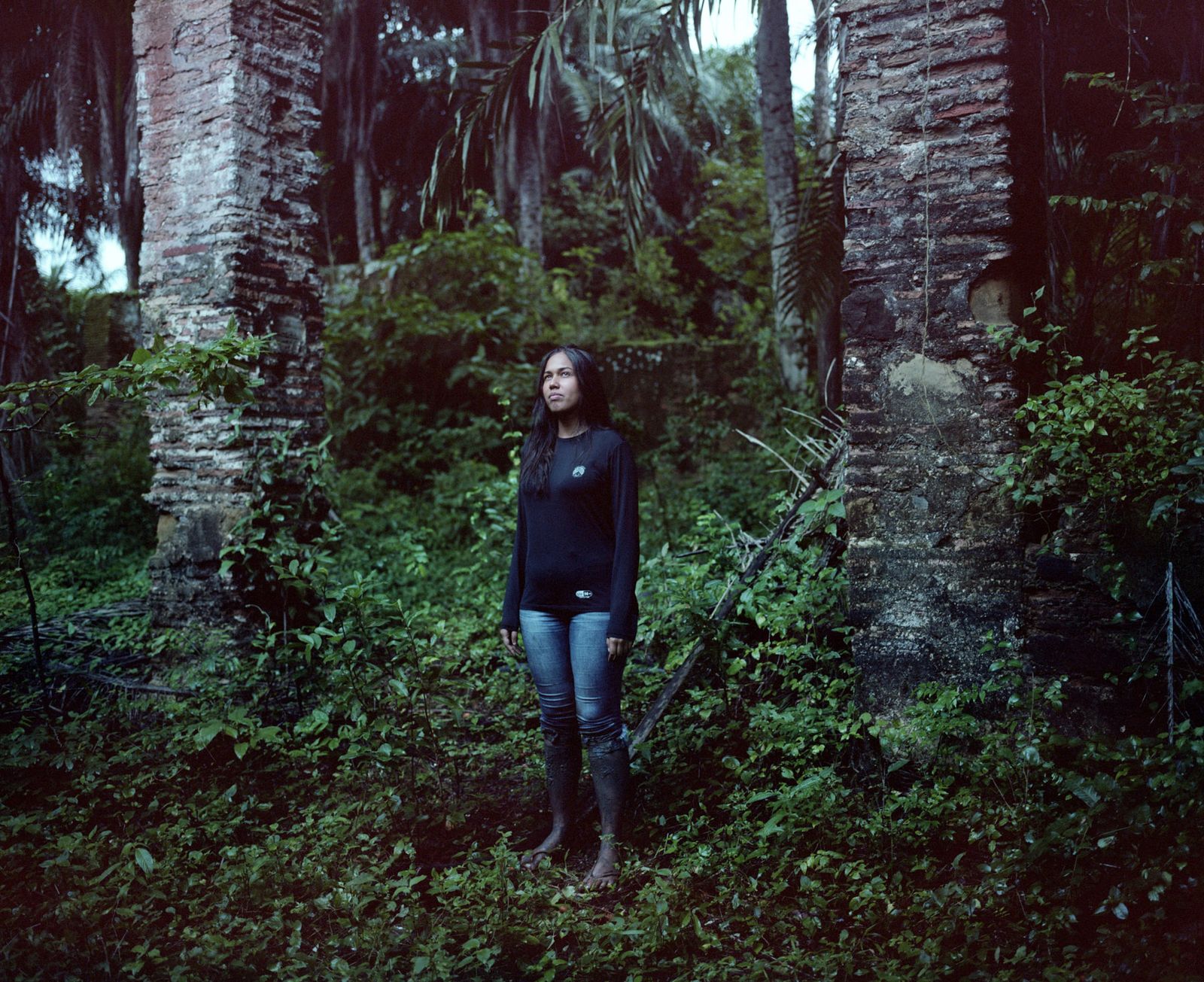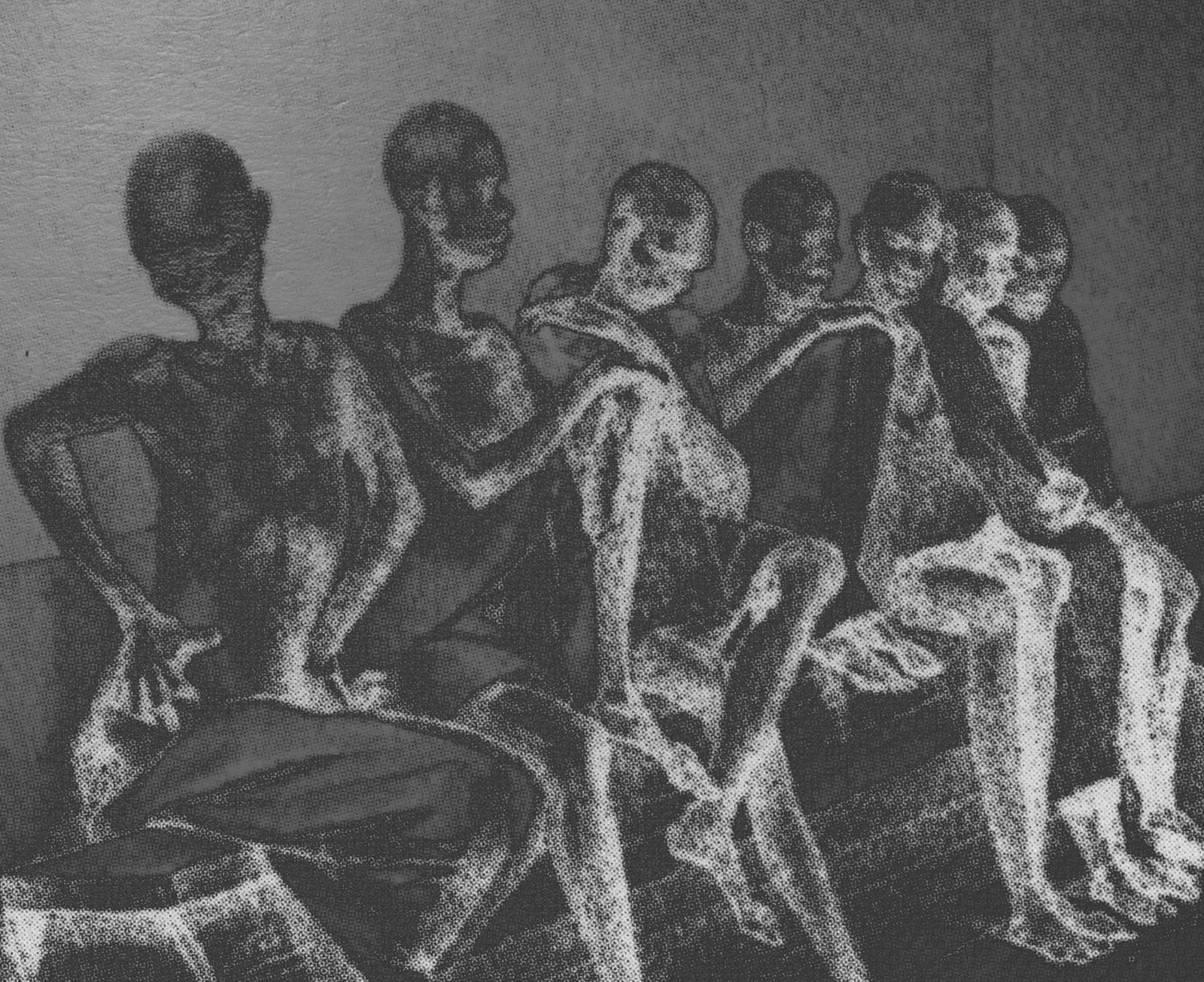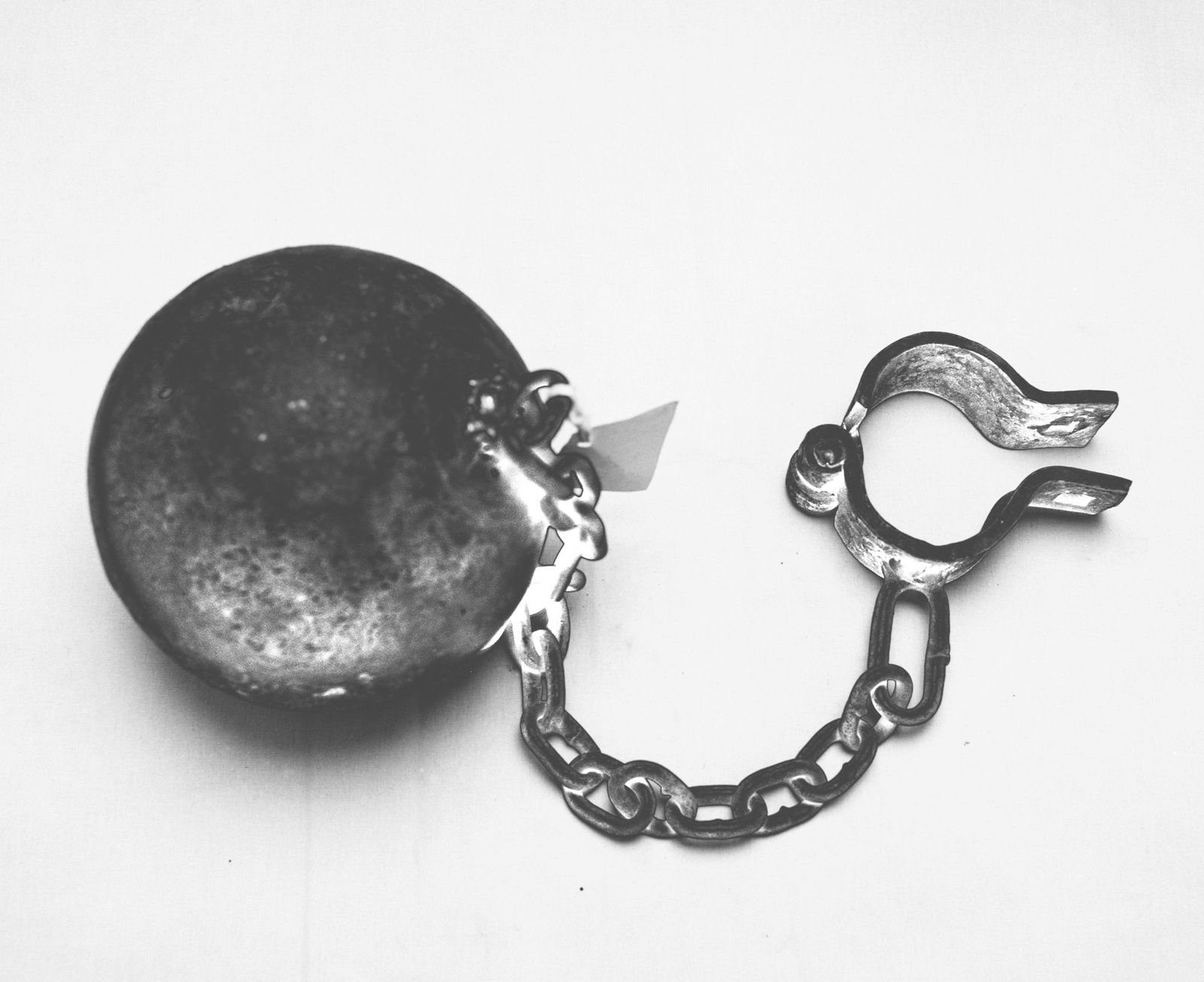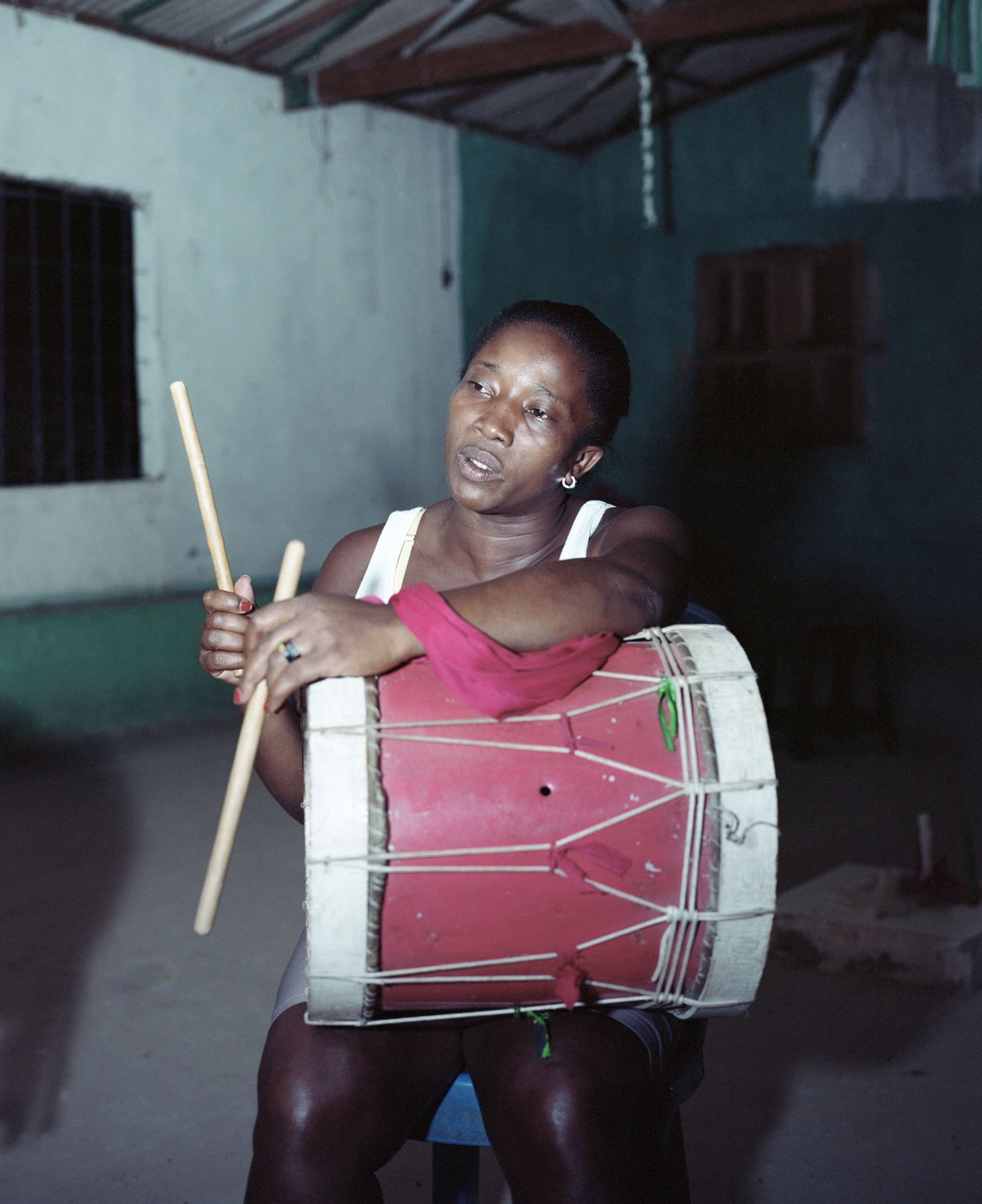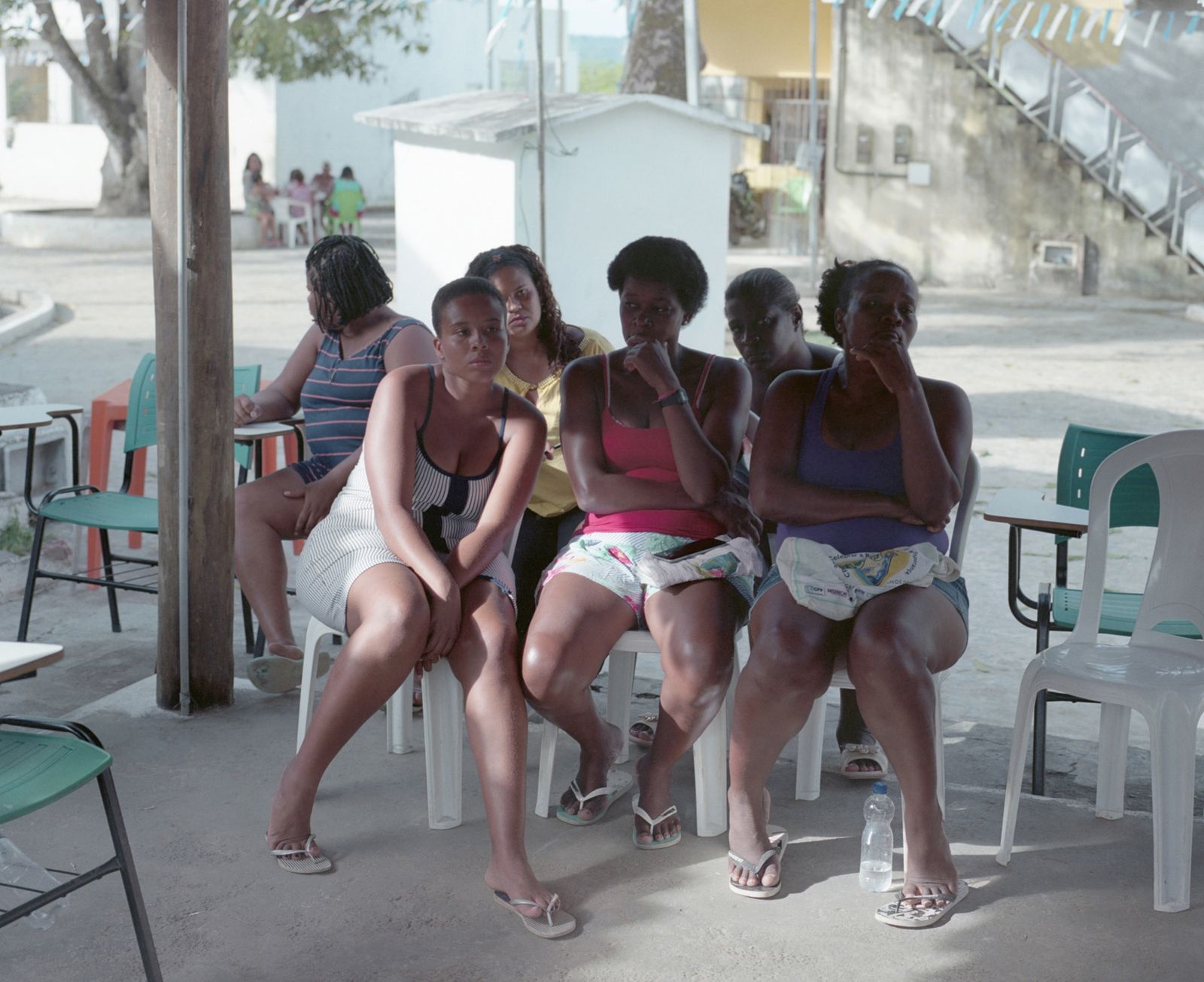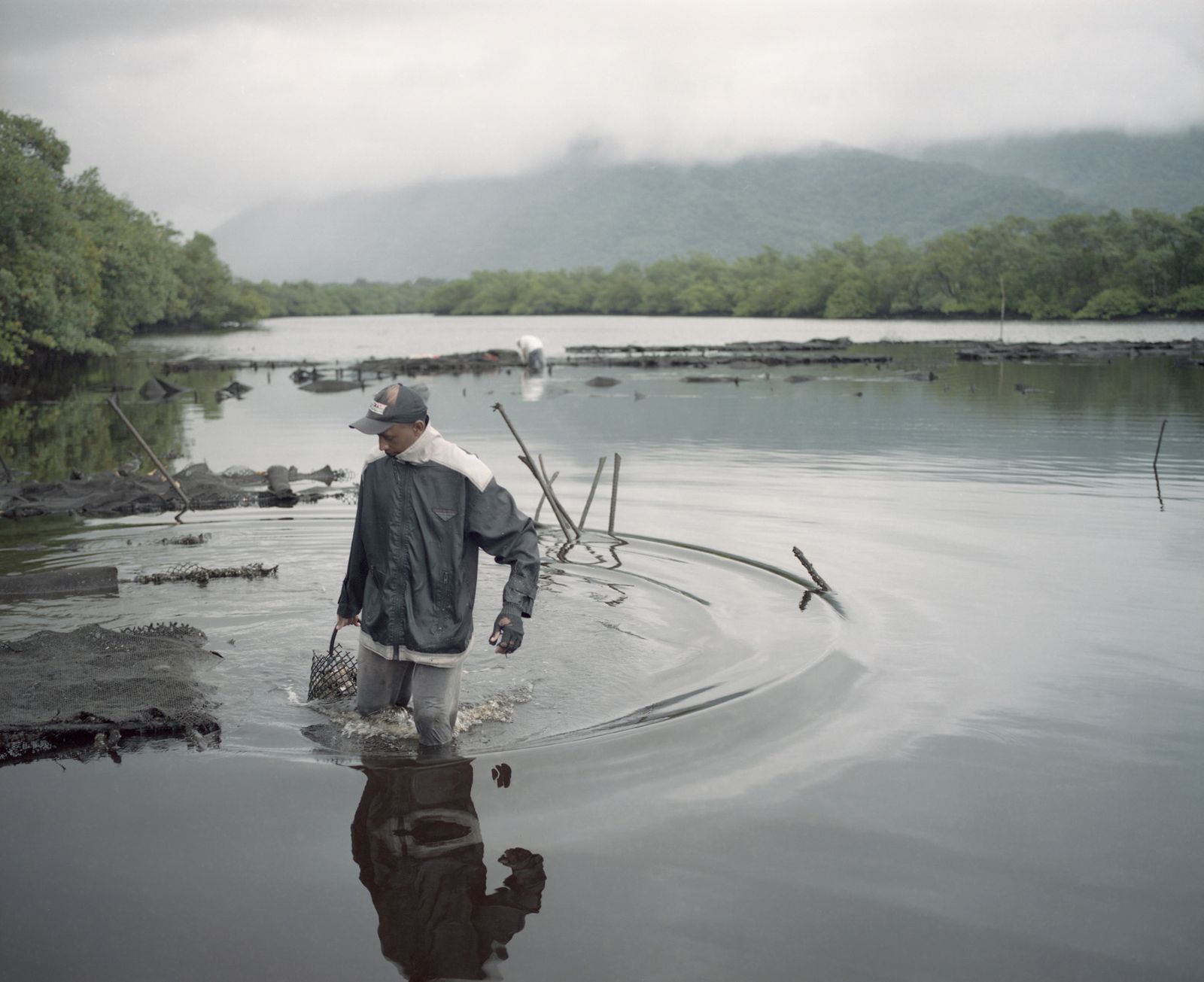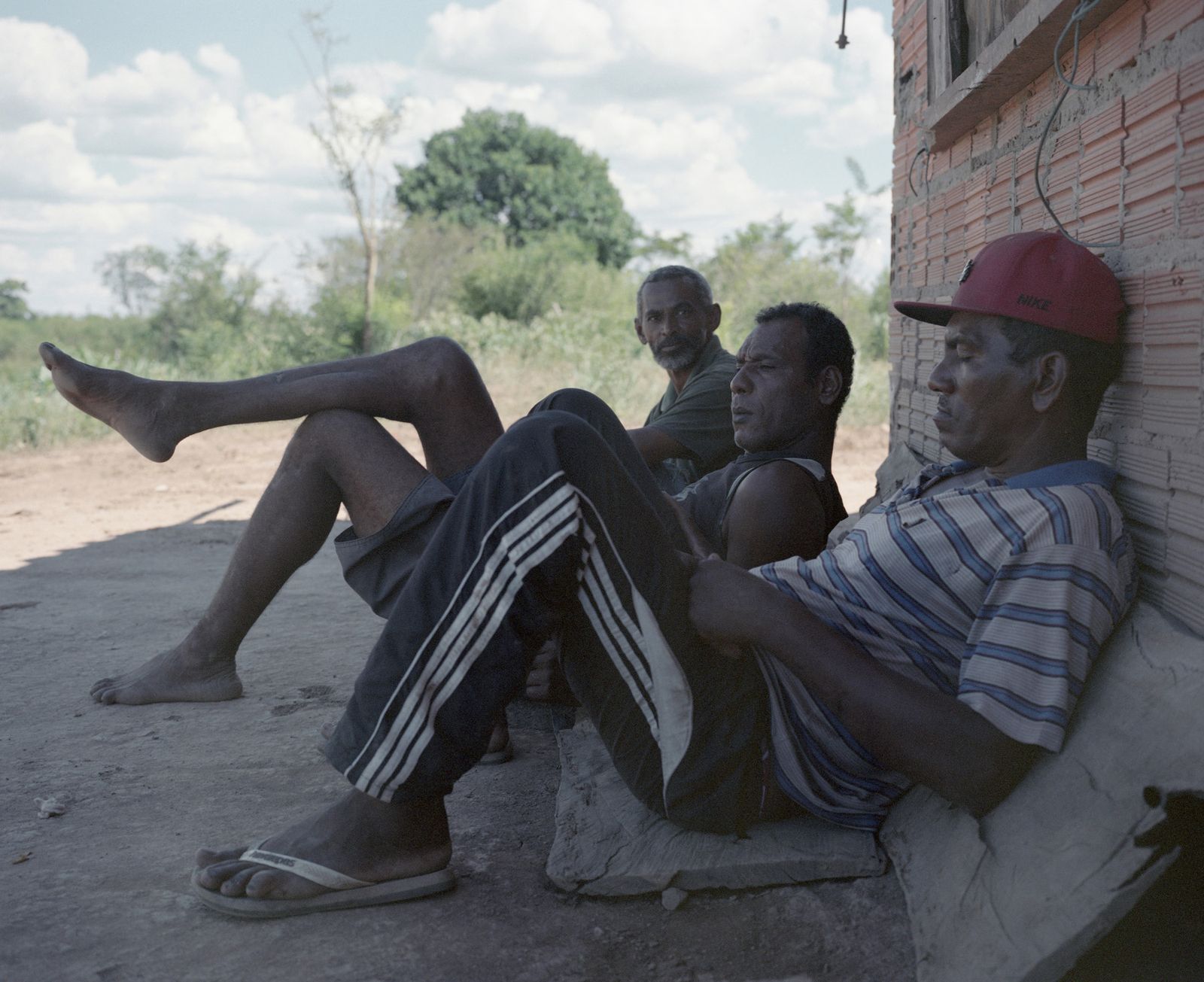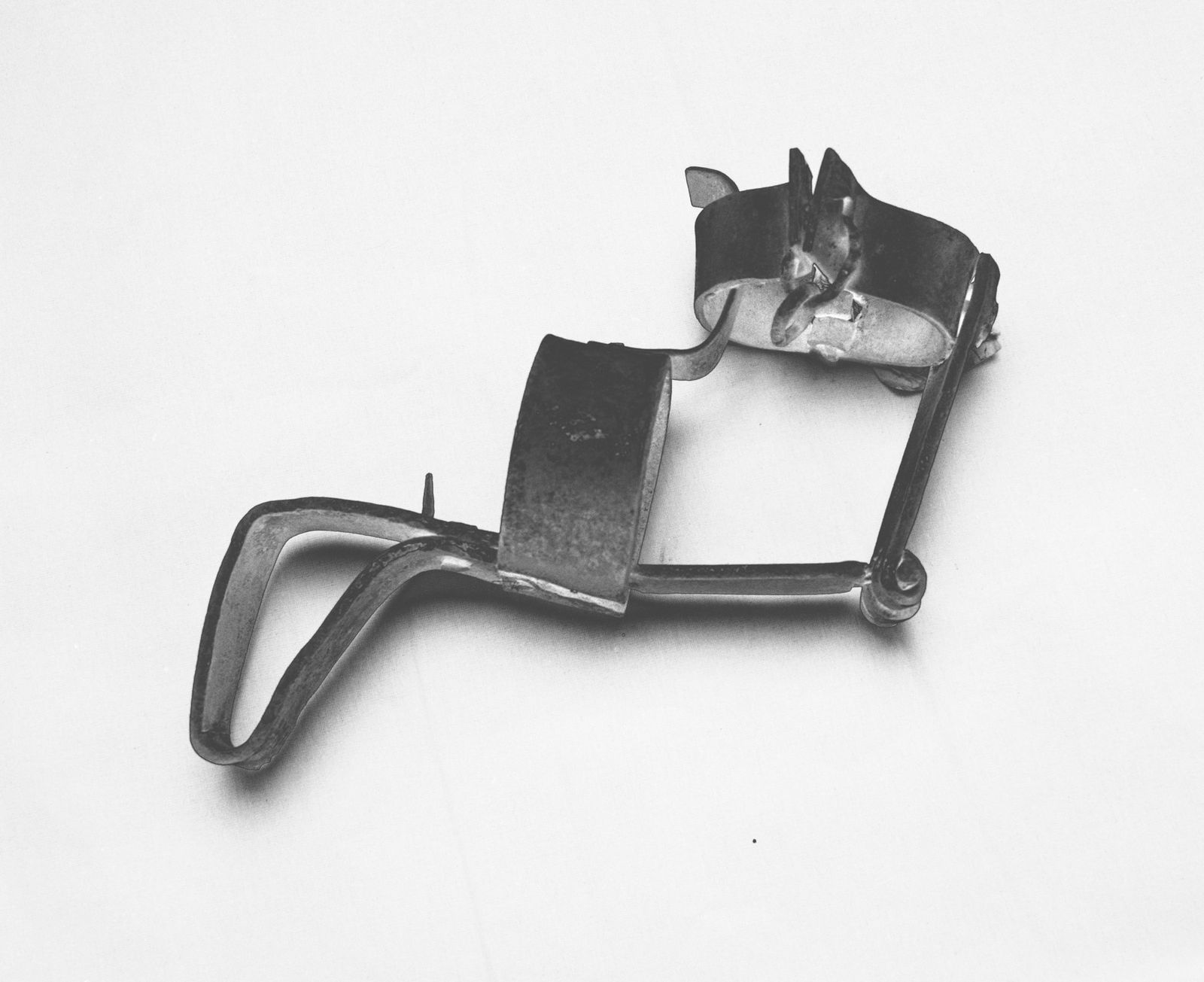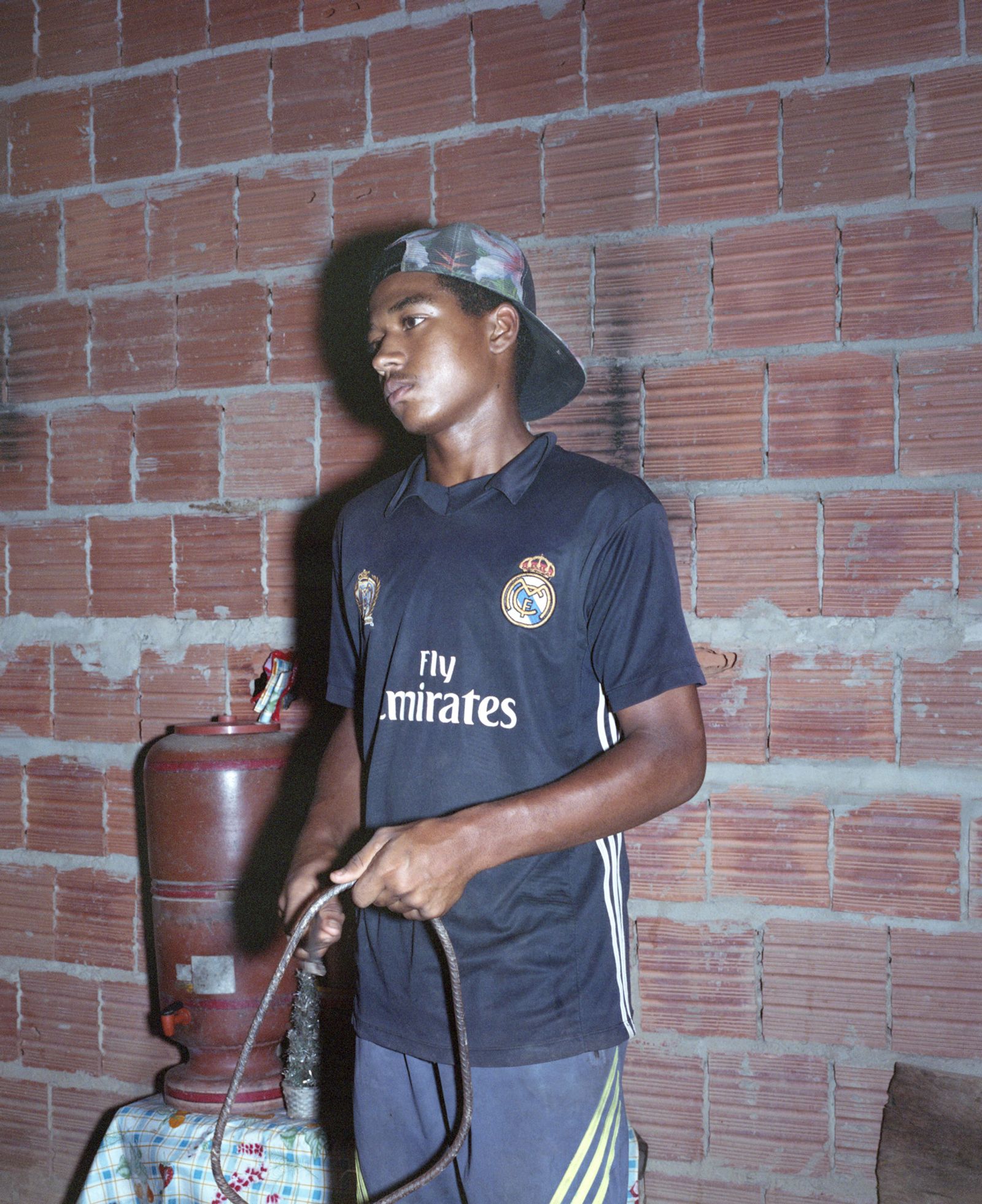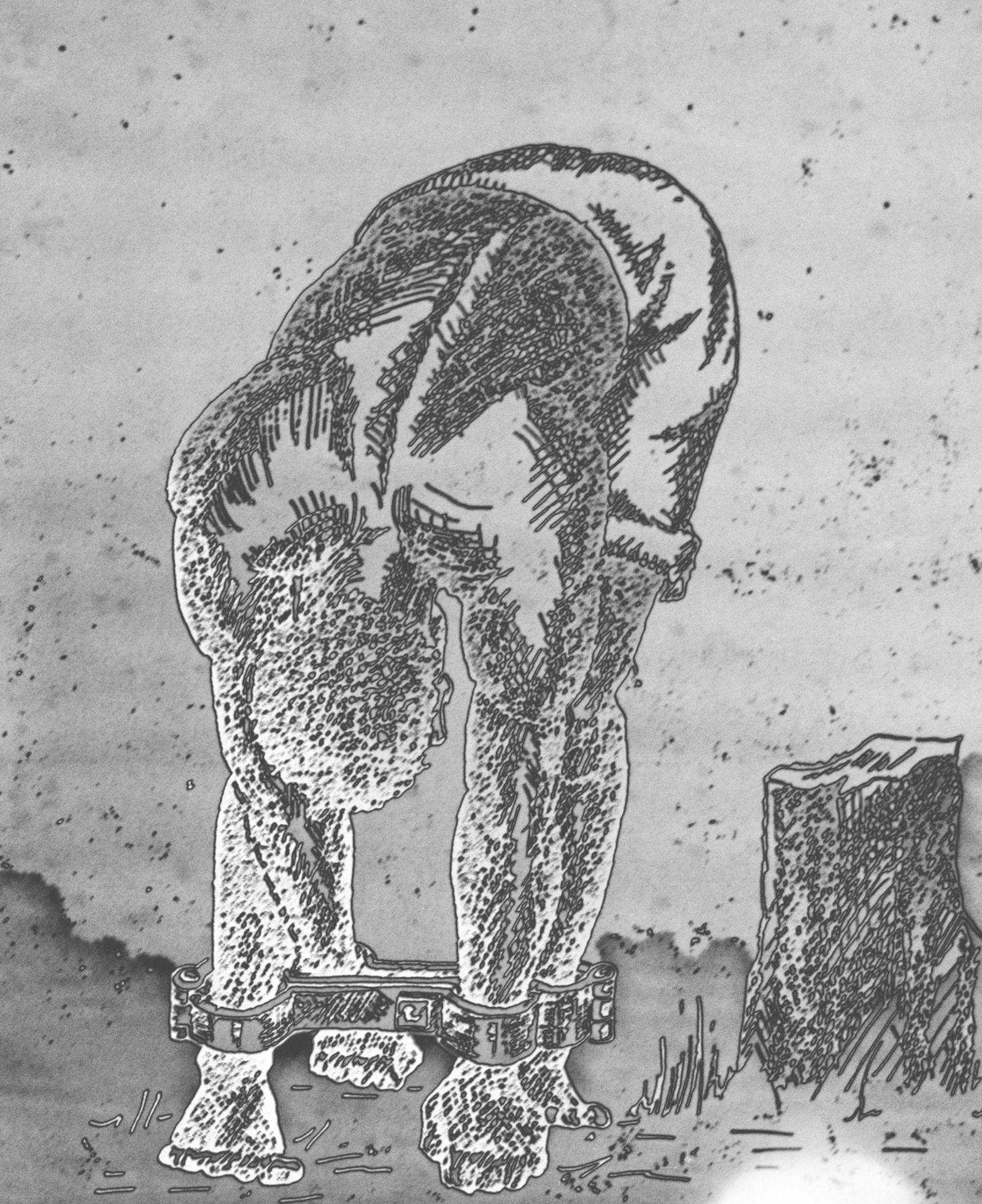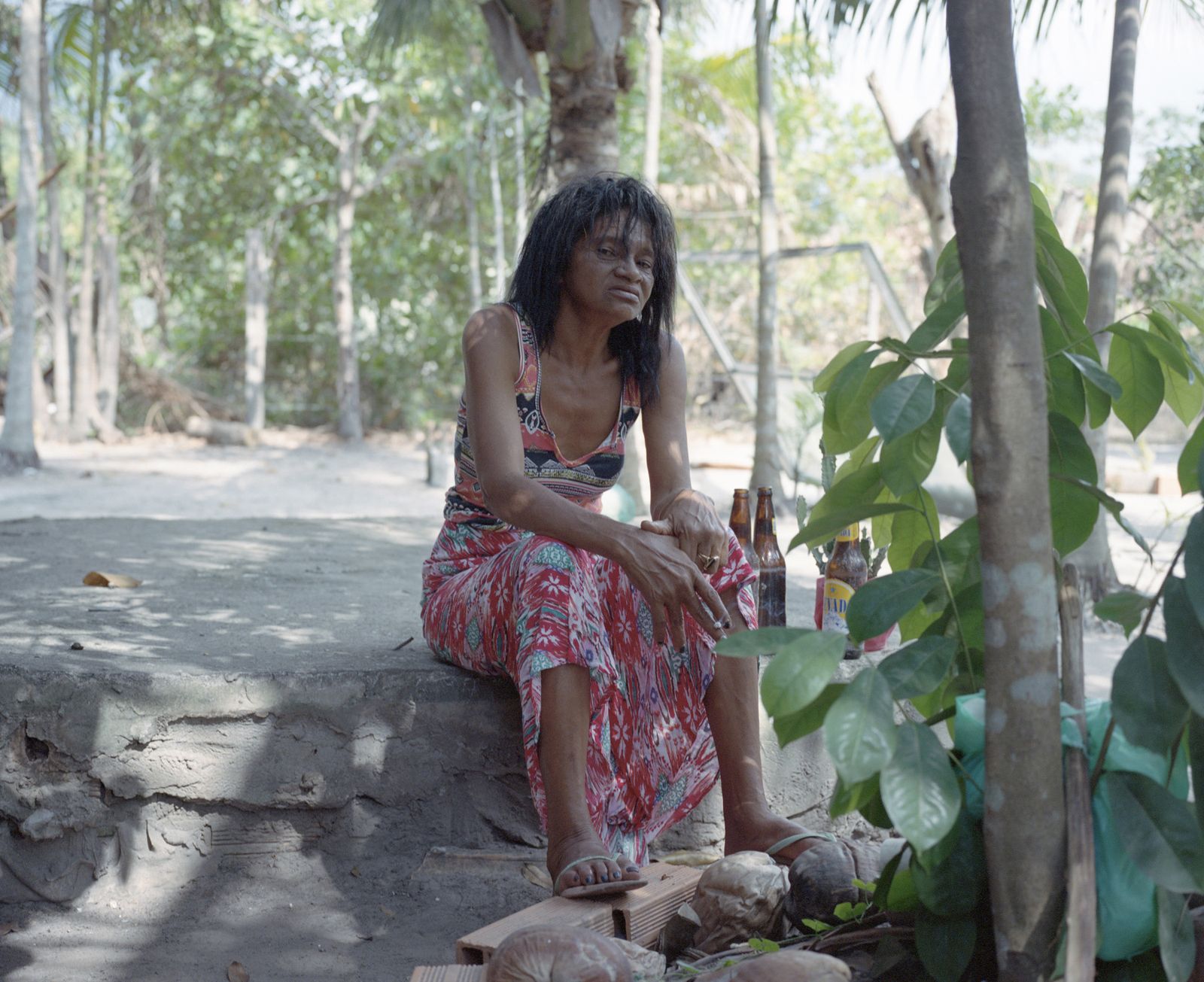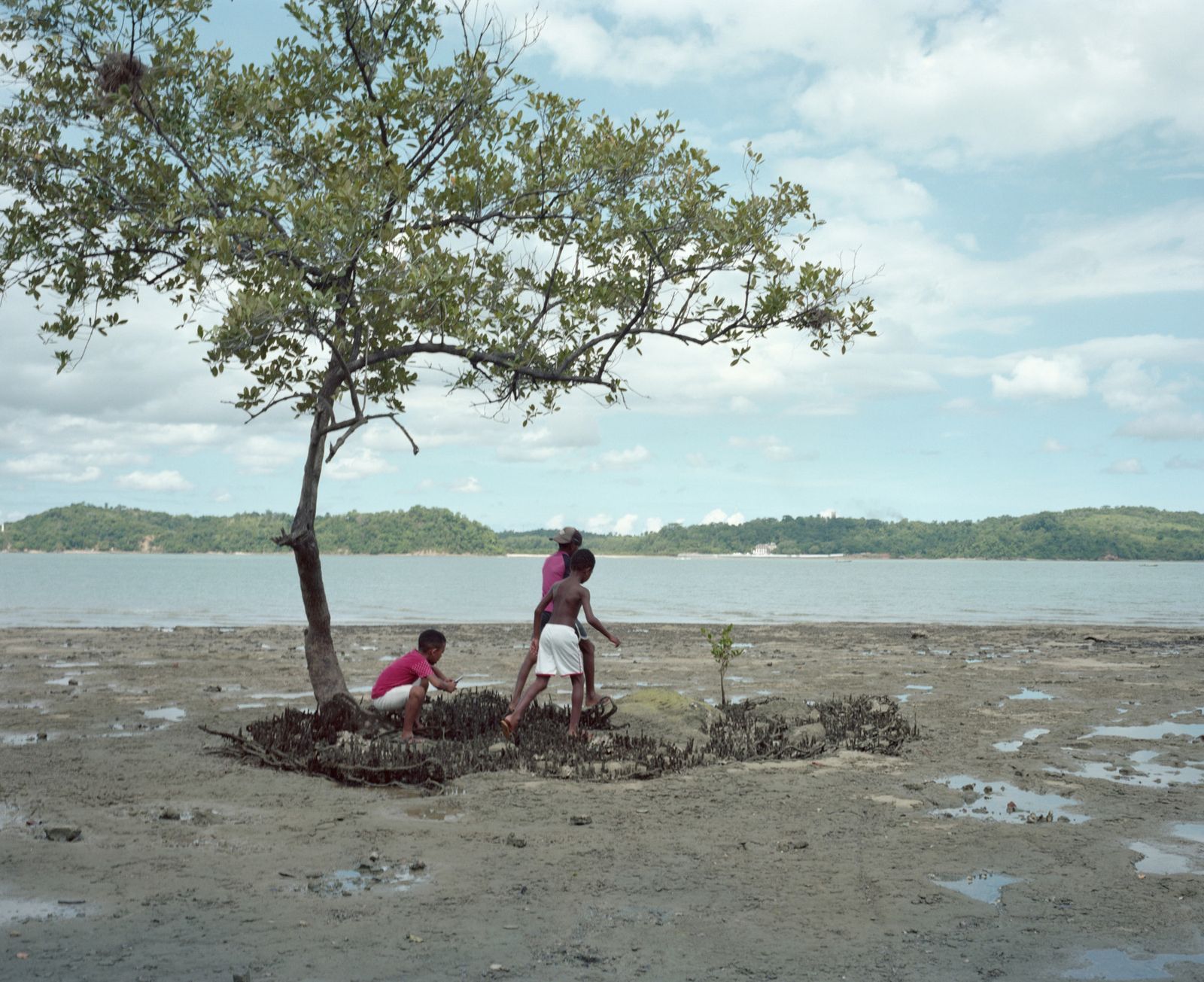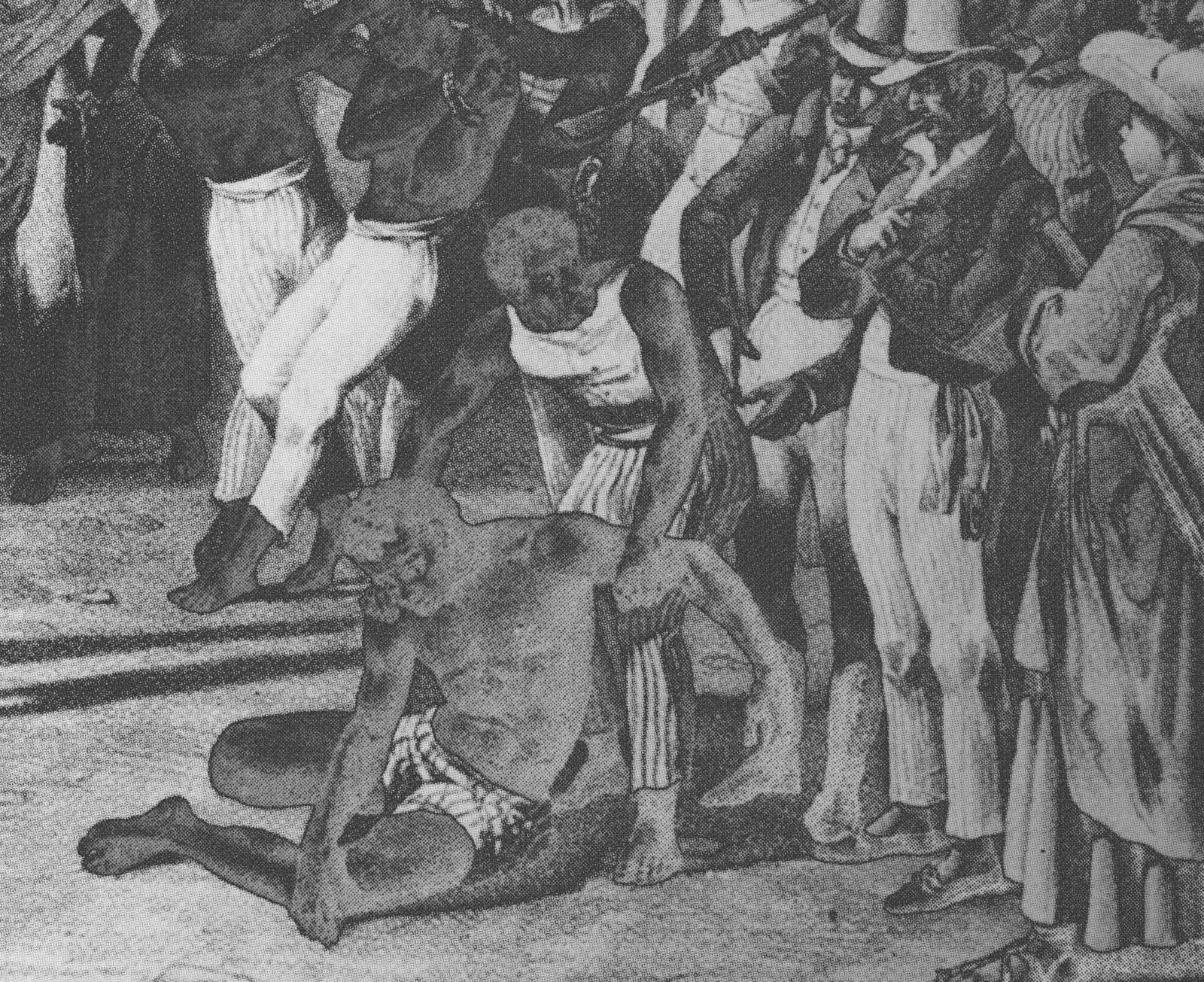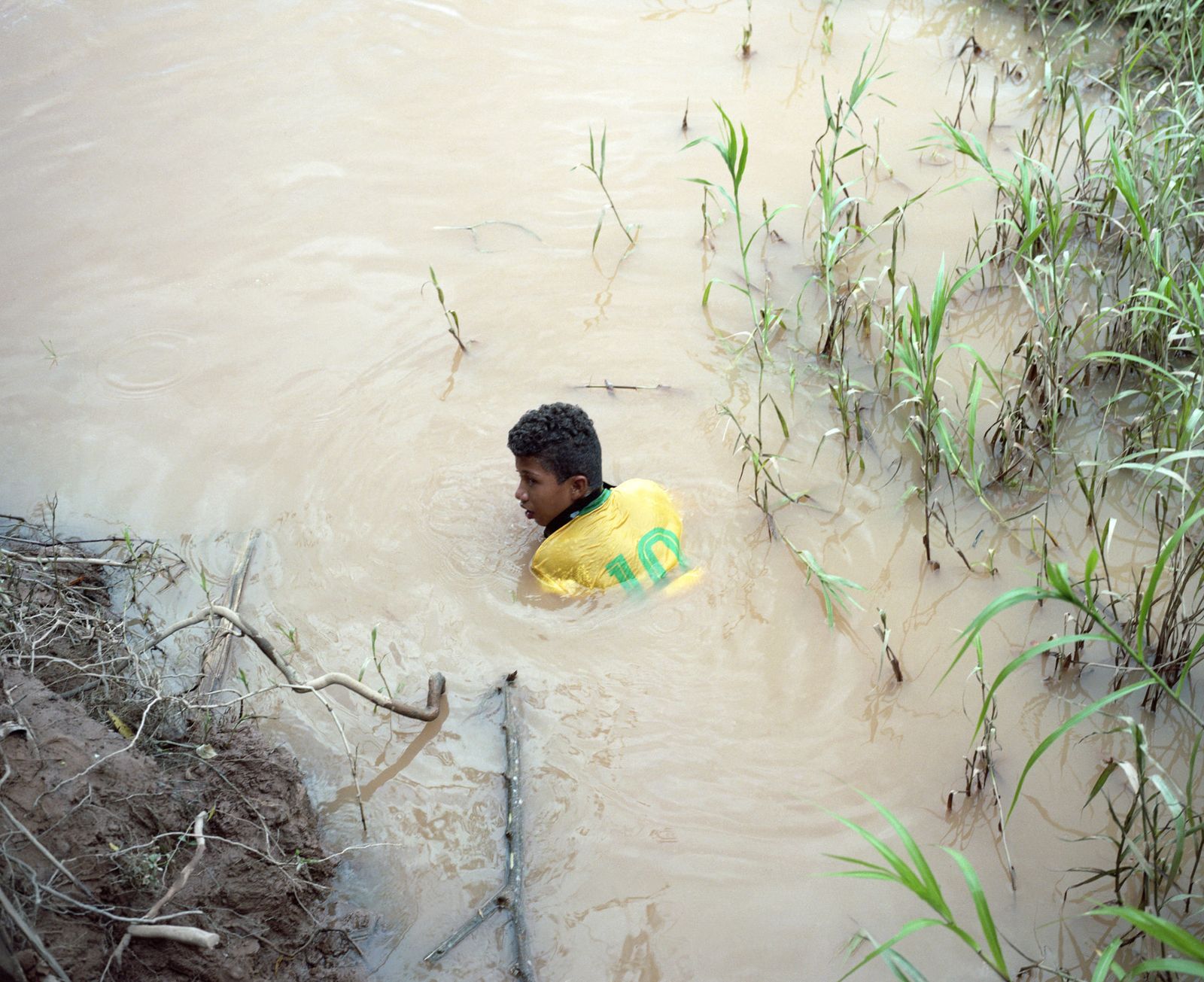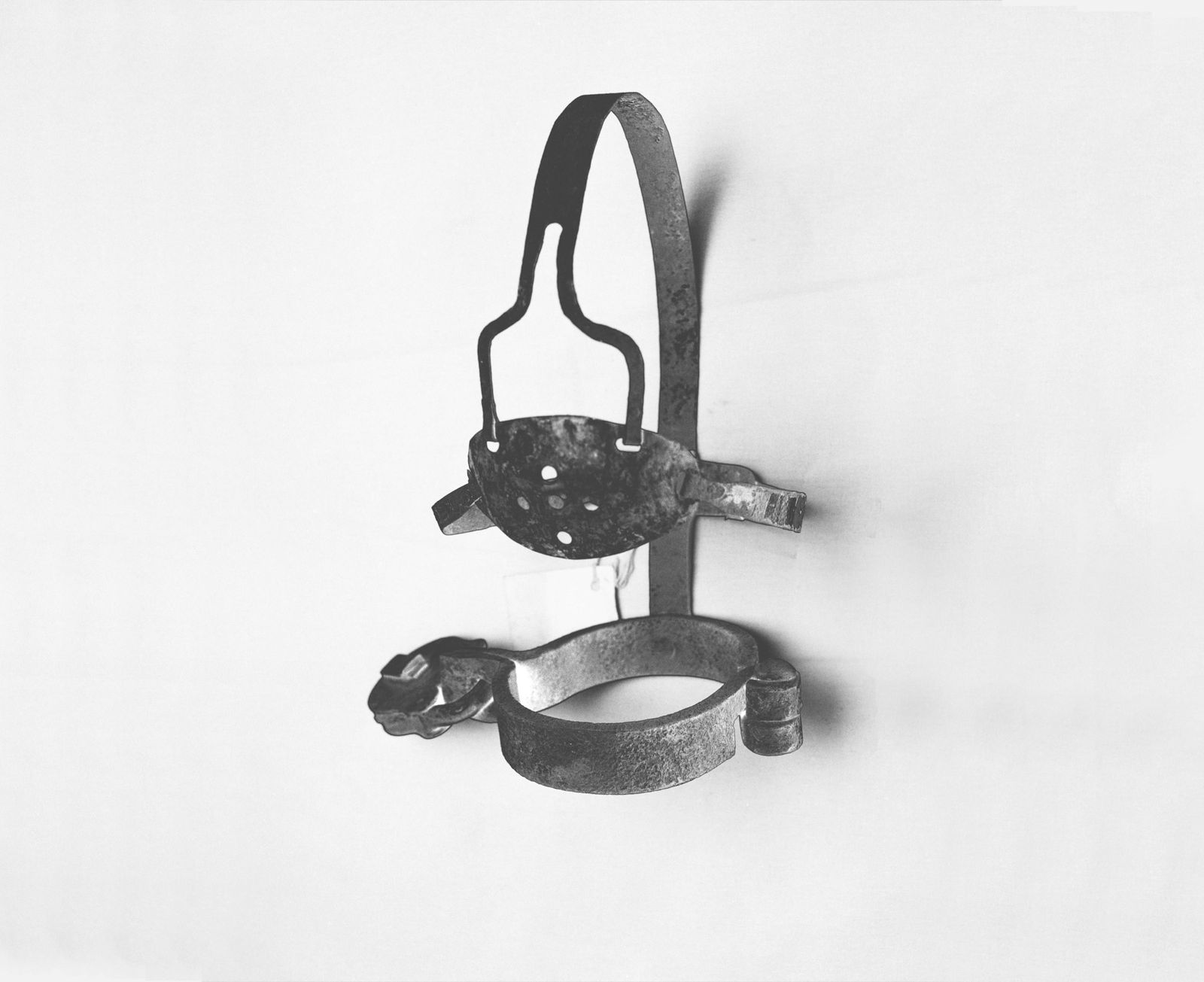Frames of Struggle
-
Dates2016 - 2022
-
Author
- Location Brazil, Brazil
Frames of Struggle is a work contrasting the historical representation of African slaves with images of the activism and resistance of Afro-Brazilian Quilombolas.
Frames of Struggle is a work contrasting the historical representation of African slaves with images of the activism and resistance of Afro-Brazilian Quilombolas. Historical representations structure the work through a photographic reproduction of its details; These images, as well as photographs of torture objects, are processed through black and white conversion, followed by digital solarization. The techniques used, based on the procedure of inverting tonal values, aim to produce a effect of estrangement in relation to the representation of the other as a process built from an aesthetic based on racism and coloniality. The historical images of oppression and violence are contrasted with photographs of activists from different Quilombola communities, located in Brazilian territory. Photographic images are created using colored films, producing a palette of pastel colors with the aim of creating “pictorial photographs” and thus seeking to build a new narrative/visual history of the Afro-Brazilian subject. Through a dialogue between techniques and content, I intend to present other “frames of struggle” to dismantle the imagetic racism that guides Brazilian society. The documentary photographic work was carried out in the following Quilombola communities: Quilombo do Mandira (SP); Quilombo de Croatá (MG); Quilombo Boca do Rio (BA); Quilombo Ilha da Maré (BA); Quilombo Santa Rosa dos Pretos (MA).
As a documentary photographer, there is one question I always ask myself before starting a project: what kind of society do I live in? And, above all, in which society would you like to live? In 2016, a few months after moving permanently to Brazil, I started a photography project about Quilombola Communities whose rights were being violated. The “Frames of Struggles” project was developed between 2017 and 2022; during these five years, I lived and documented the daily life and challenges faced by different Quilombos in Brazilian territory; throughout this process, many times I often asked myself how legitimately I was developing work on a topic that was not part of my personal history and that did not directly affect my life. The answer, in the form of a question, was always the same: in which society would I like to live? The violation of human and civil rights and, more specifically, structural racism, in my point of view, should not only concern groups and people who suffer daily, and directly, its consequences. A truly democratic society is measured by its ability to eradicate injustices, especially racial ones; It is also measured by the appreciation of diversity, the promotion of equal conditions and opportunities and, finally, the creation of policies, institutional instruments and laws that guarantee the rights of discriminated against people and groups. For Quilombola Communities, this would mean: the titling of their lands, the valorization of their cultures and products, the inclusion of their leaders in the decisions and political choices of the state and government. The state and governments have a decisive role in this process, but I also believe that each person, in a different way, can perhaps do their part. As for me personally, I have no doubt: a society in which Quilombola Communities and their rights are respected and guaranteed would certainly be the society in which I would like to live.
